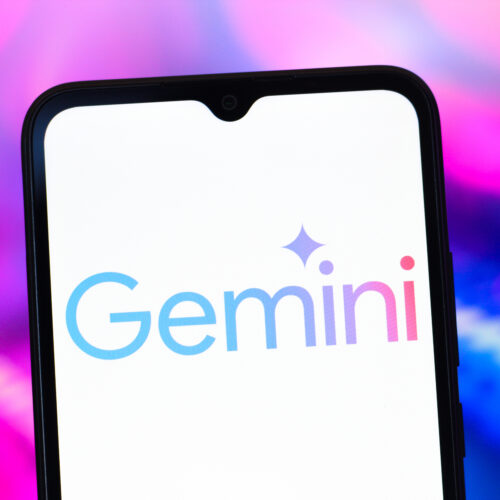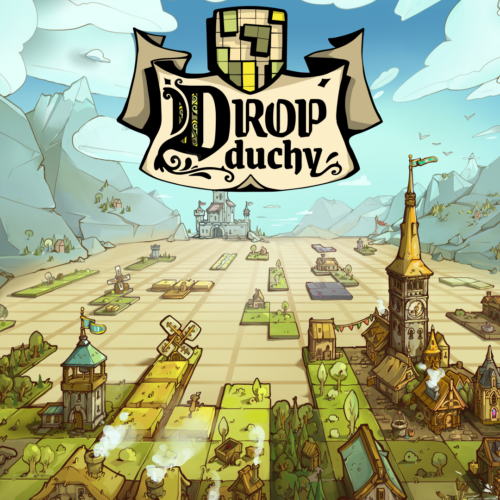HBO’s The Last of Us S2E6 recap: Look who’s back!
New episodes of season 2 of The Last of Us are premiering on HBO every Sunday night, and Ars' Kyle Orland (who's played the games) and Andrew Cunningham (who hasn't) will be talking about them here after they air. While these recaps don't delve into every single plot point of the episode, there are obviously heavy spoilers contained within, so go watch the episode first if you want to go in fresh.
Kyle: Going from a sudden shot of beatific Pedro Pascal at the end of the last episode to a semi-related flashback with a young Joel Miller and his brother was certainly a choice. I almost respect how overtly they are just screwing with audience expectations here.
As for the opening flashback scene itself, I guess the message is "Hey, look at the generational trauma his family was dealing with—isn't it great he overcame that to love Ellie?" But I'm not sure I can draw a straight line from "he got beat by his dad" to "he condemned the entire human race for his surrogate daughter."
Andrew: I do not have the same problems you did with either the Joel pop-in at the end of the last episode or the flashback at the start of this episode—last week, the show was signaling "here comes Joel!" and this week the show is signaling "look, it's Joel!" Maybe I'm just responding to Tony Dalton as Joel's dad, who I know best as the charismatic lunatic Lalo Salamanca from Better Call Saul. I do agree that the throughline between these two events is shaky, though, and without the flashback to fill us in, the "I hope you can do a little better than me" sentiment feels like something way out of left field.
But I dunno, it's Joel week. Joel's back! This is the Duality of Joel: you can simultaneously think that he is horrible for failing a civilization-scale trolley problem when he killed a building full of Fireflies to save Ellie, and you can't help but be utterly charmed by Pedro Pascal enthusiastically describing the many ways to use a Dremel. (He's right! It's a versatile tool!)
Truly, there's pretty much nothing in this episode that we couldn't have inferred or guessed at based on the information the show has already made available to us. And I say this as a non-game-player—I didn't need to see exactly how their relationship became as strained as it was by the beginning of the season to have some idea of why it happened, nor did I need to see The Porch Scene to understand that their bond nevertheless endured. But this is also the dynamic that everybody came to the show for last season, so I can only make myself complain about it to a point.
Kyle: It's true, Joel Week is a time worth celebrating. If I'm coming across as cranky about it at the outset, it's probably because this whole episode is a realization of what we're missing out on this season thanks to Joel's death.
As you said, a lot of this episode was filling in gaps that could well have been inferred from events we did see. But I would have easily taken a full season (or a full second game) of Ellie growing up and Joel dealing with Ellie growing up. You could throw in some zombie attacks or an overarching Big Bad enemy or something if you want, but the development of Joel and Ellie's relationship deserves more than just some condensed flashbacks.
Andrew: Yeah, it's hard not to be upset about the original sin of The Last of Us Part 2 which is (assuming it's like the show) that having some boring underbaked villain crawl out of the woodwork to kill the show's main character is kind of a cheap shot. Sure, you shock the hell out of viewers like me who didn't see it coming! But part of the reason I didn't see it coming is because if you kill Joel, you need to do a whole bunch of your show without Joel and why on Earth would you decide to do that?
To be clear, I don't mind this season so much, and I've found things to like about it, though Ellie does sometimes veer into being a protagonist so short-sighted and impulsive and occasionally just-plain-stupid that it's hard to be in her corner. But yeah, flashing back to a time just two months after the end of season 1 really does make you wonder, "Why couldn't the story just be this?"
Kyle: In the gaming space, I understand the desire to not have your sequel game be just "more of the same" from the last game. But I've always felt The Last of Us Part 2 veered too hard in the other direction and became something almost entirely unrecognizable from the original game I loved.
But let's focus on what we do get in this episode, which is an able recreation of my favorite moment from the second game, Ellie enjoying the heck out of a ruined science museum. The childlike wonder she shows here is a great respite from a lot of action-heavy scenes in the game, and I think it serves the same purpose here. It's also much more drawn out in the game—I could have luxuriated in just this part of the flashback for an entire episode!
Andrew: The only thing that kept me from being fully on board with that scene was that I think Ellie was acting quite a bit younger than 16, with her pantomimed launch noises and flipping of switches, But I could believe that a kid who had such a rough and abbreviated childhood would have some fun sitting in an Apollo module. For someone with no memories of the pre-outbreak society, it must seem like science fiction, and the show gives us some lovely visuals to go with it.
The things I like best here are the little moments in between scenes rather than the parts where the show insists on showing us events that it had already alluded to in other episodes. What sticks with me the most, as we jump between Ellie's birthdays, is Joel's insistence that "we could do this kind of thing more often" as they go to a museum or patrol the trails together. That it needs to be stated multiple times suggests that they are not, in fact, doing this kind of thing more often in between birthdays.
Joel is thoughtful and attentive in his way—a little better than his father—but it's such a bittersweet little note, a surrogate dad's clumsy effort to bridge a gap that he knows is there but doesn't fully understand.
Kyle: Yeah, I'm OK with a little arrested development in a girl that has been forced to miss so many of the markers of a "normal" pre-apocalypse childhood.
But yeah, Joel is pretty clumsy about this. And as we see all of these attempts with his surrogate daughter, it's easy to forget what happened to his real daughter way back at the beginning of the first season. The trauma of that event shapes Joel in a way that I feel the narrative sometimes forgets about for long stretches.
But then we get moments like Joel leading Gail's newly infected husband to a death that the poor guy would very much like to delay by an hour for one final moment with his wife. When Joel says that you can always close your eyes and see the face of the one you love, he may have been thinking about Ellie. But I like to think he was thinking about his actual daughter.
Andrew: Yes to the extent that Joel's actions are relatable (I won't say "excusable," but "relatable") it's because the undercurrent of his relationship with Ellie is that he can't watch another daughter die in his arms. I watched the first episode again recently, and that whole scene remains a masterfully executed gut-punch.
But it's a tough tightrope to walk, because if the story spends too much time focusing on it, you draw attention to how unhealthy it is for Joel to be forcing Ellie to play that role in his life. Don't get me wrong, Ellie was looking for a father figure, too, and that's why it works! It's a "found family" dynamic that they were both looking for. But I can't hear Joel's soothing "baby girl" epithet without it rubbing me the wrong way a little.
My gut reaction was that it was right for Joel not to fully trust Gail's husband, but then I realized I can never not suspect Joe Pantoliano of treachery because of his role as betrayer in the 26-year-old movie The Matrix. Brains are weird.
Kyle: I did like the way Ellie tells Joel off for lying to her (and to Gail) about the killing; it's a real "growing up" moment for the character. And of course it transitions well into The Porch Scene, Ellie's ultimate moment of confronting Joel on his ultimate betrayal.
While I'm not a fan of the head-fake "this scene isn't going to happen" thing they did earlier this season. I think the TV show once again did justice to one of the most impactful parts of the game. But the game also managed to spread out these Joel-centric flashbacks a little more, so we're not transitioning from "museum fun" to "porch confrontation" quite so quickly. Here, it feels like they're trying hard to rush through all of their "bring back Pedro Pascal" requirements in a single episode.
Andrew: Yeah, because you don't need to pay a 3D model's appearance fees if you want to use it in a bunch of scenes of your video game. Pedro Pascal has other stuff going on!
Kyle: That's probably part of it. But without giving too much away, I think we're seeing the limits of stretching the events of "Part 2" into what is essentially two seasons. While there have been some cuts, on the whole, it feels like there's also been a lot of filler to "round out" these characters in ways that have been more harmful than helpful at points.
Andrew: Yeah, our episode ends by depositing us back in the main action, as Ellie returns to the abandoned theater where she and Dina have holed up. I'm curious to see what we're in for in this last run of almost-certainly-Joel-less episodes, but I suspect it involves a bunch of non-Joel characters ping-ponging between the WLF forces and the local cultists. There will probably be some villain monologuing, probably some zombie hordes, probably another named character death or two. Pretty standard issue.
What I don't expect is for anyone to lovingly and accurately describe the process of refurbishing a guitar. And that's the other issue with putting this episode where it is—just as you're getting used to a show without Joel, you're reminded that he's missing all over again.


© Warner Bros. Discovery



















